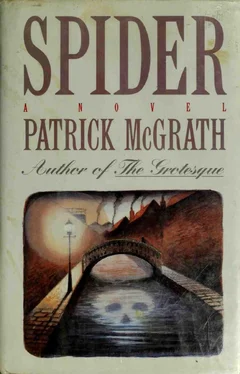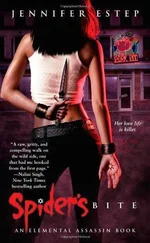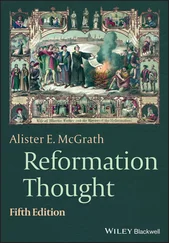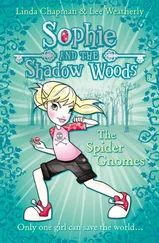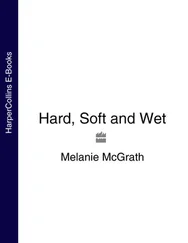In the days that followed Spider was often in the Dog and Beggar. He would wander up and down Kitchener Street for an hour or so, hoping for a glimpse of his mother, though at some level he knew from the moment he laid eyes on that pitful of rubbish where number twenty-seven used to be that he’d never see her again. So what drew him back? God knows, perhaps merely to regard the desolation and say to himself, this is your doing, you did this. After the third or fourth time he was able to brave it without becoming hopelessly distressed; a curious calm then, a sense of slowing down, of a coming to resolution, not unconnected to the constant reassuring presence of the loaded sock hanging down his trousers. It was a sad, vague, sleepy calm, more a melancholy, and it was only disturbed by the nightly shrieking from the attic and the writhing of the lung-worm trapped inside his body. He moved slowly but with purpose now within his given compass, and whiled away some hours each day in the public bar of the Dog. It remained to him only to settle accounts with Hilda.
Then one afternoon he left the Dog and followed the old familiar route down to the canal, over the bridge and up the hill to Omdurman Close, and so to the allotments. By this time of the afternoon the sun was sinking toward the river and there was a perceptible thickening of the light. Down the path he shuffled to his father’s gate; the place was deserted. He entered the allotment and got to his knees in the potato patch, then stretched out flat on the wintry soil. He lay there motionless for several minutes. There was an odd silence on the allotments, its depth and stillness intensified somehow by the faint and distant barking of a dog. There was silence, too, in the earth, so he scrambled slowly to his feet and made his way round to the back of the shed, where he had a clear view over the wasteground that had once been the Slates, beyond it a sprawl of warehouses and docks, and beyond that the river. The sun by this time had chalked the sky a sort of powdery reddish color that grew deeper and richer even as he watched. Already the river was shimmering with the lights of the city, and now a flotilla of little flecky-edged clouds formed a long streaming sinking line above the sun, their undersides burnished by the last rays as they followed it down. Tower Bridge was etched black against the red, and directly above it he saw what looked like a few broken lines of illegible molten script. Then he turned and shambled off through the gloom of the garden, in the fading, the dying, of the day...
Oh I throw down my pencil with disgust. I am not mellow or melancholy or maudlin, I am in foul humor, these last days have been utter hell. I cannot sleep, I cannot eat, and I cannot escape the constant, pervasive, almost paralyzing sense that everything around me is turning silent and empty and dead. The very air seems filled with death! It’s occurred to me more than once that I am dead—the presence in my body of the worm and the spiders would seem to suggest this, the withering of my vital organs, the smell of rot and decay that seeps continuously from my rind now—aren’t these signs of death? When did it happen? Was there a moment of death, a moment at which you could say then he lived, then he was dead? I don’t think so. I think it’s been gradual, a slow death that began the day I stood beneath the Ganderhill clock with my cardboard suitcase and my three pound notes—though it occurs to me even as I write this that perhaps it began even earlier, that it began the night my mother died, and that since then I’ve just been burning down, smoldering to ash and dust inside myself while preserving merely the outward motions, the jerky gestures and postures of life. So perhaps it’s not been a life at all, but a crumbling, held together by sticks and bits of string, a child’s construction; and now all that’s left is ash and dust, and the spiders that feed on such compost. There’s the bell for supper but I shall not go down. Hilda is down there somewhere, probably still hunting for her house keys. I know she thinks I have them, for she’s been in here looking for them, her smell is in the room and won’t go away. They’re still in my sock but the irony is I can’t seem to pluck up the courage to use them—I have the idea that were I to unlock the door to the attic stairs and go up I’d be torn to pieces and eaten; so I suffer their outrages rather than confront them. And as always it’s the journal and the tobacco alone that provide what little scaffolding I have.
Later I hear the wireless playing dance music in the dayroom, and later still the plumbing groans and thumps and clanks to life as dead souls shuffle into bathroom and lavatory to scrub their crumbling teeth and empty their shriveled bladders. Dead souls! I am the deadest of dead souls now, see me lying on the bed smoking a thin one to keep the lung-worm down, regard the weary zombie!
Later still the house grows quiet, and in the early part of the night, before they start the chanting, I often prowl from floor to floor, for I like the shadows. I specially like the way the light from the streetlamp sifts in through the frosted glass panels of the front door and spreads a dim glow across the hallway, I often sit in the darkness at the top of the first flight of stairs and watch the glow, for I find it makes me tranquil. What makes me even more tranquil is being in the kitchen late at night, when everything is quiet. One night I discovered the cupboard under the sink, and by means of my lighter was able to examine its contents carefully: there was a U-shaped pipe descending from the sink above; there was a toolbox; there were bottles of bleach and ammonia; rags; detergents; a stack of yellowing newspaper; a tin bucket with a scrubbing brush and a bar of carbolic soap in it; I even found my rope in there. I spent half an hour sitting cross-legged gazing into the cupboard, the lighter burning fitfully on the floor in front of me. Then I took everything out, set it all neatly on the kitchen floor, and climbed in myself—not an easy task, I am not small! But with my head on my chest, and the U-shaped pipe in my lap, and my arms round my knees, I was able to squeeze in and pull the door shut. For ten minutes I sat there squashed up in the darkness, and felt great peace. Then I climbed out and turned the taps on; with the sound of running water in the pipe the little cupboard was heavenly, and now I am spending thirty or forty minutes in there every night.
But if I stay too long they make me suffer for it, so you’ll see me suddenly emerge from under the sink and go scuttling back up to my room in a fine state of guilty panic! Ah, the creatures. Often now they work on the ceiling, they use the ceiling as a screen, and upon it they project images and even entire scenes that are distortions, or elaborate parodies, of pieces of my past. They have learned, too, the insidious technique of taking the content of my day’s thoughts and rendering it filthy or absurd or grotesque, and sometimes even as I’m writing, and can’t stop myself looking up, I see a skewed imitation of the very matter on the page in front of me—see now! See them do it now! See how huge my hands are, disproportionately huge, and my face long and yellow with the skin flaking off in a shower like the scales of a cod under the fishmonger’s knife! Oh see him fumbling there, the poor monster, fumbling with his pencil with those great misshapen paws—the pencil so tiny and delicate now as he tries to grasp and manipulate it—and I tear my eyes away, force myself back to the book and as I do so up comes a shriek of laughter, and it’s impossible not to hear Hilda’s voice in it, the touch of hoarseness and the fierce hiss of threat in the tone.
Breakfast is a trial, for their eyes possess the means to destroy me; more hazardous still is crossing the hallway to the front door, and my nightmare is to become uncoupled halfway over. Fearing it makes it occur, so I find myself at the end of breakfast attempting not to think about becoming uncoupled; I rarely succeed. Then she comes out of her office and I am gripped with terror. “Mister Cleg!” she’ll cry. “Where is your overcoat?” Or, “Where is your cap?” One day she said: “We really must get those fingernails clipped.” Her face has started to break up the way it did in Kitchener Street, eyes and chin and hair and nose separated one from another and all afloat so I must bring them together with my mind in order to make a face. She doesn’t try to conceal her deadness and animality now, it’s evident in her fingers, which clench and unclench with barely suppressed rage and hunger. She wears the same cardigan she did the night she took my father down the gasworks canal, and I sometimes think she will open it and push her breasts at me, as she did that other night, and there’s movement in my lung at this thought. She is biding her time though; every encounter breaks off abruptly and uncertainly, leaving me bewildered. Once she said to me: “Mr. Cleg, what do you know about the bread knife?” That day she was up in my room again, I could smell her when I got back. It was as though a pack of wild animals had been living up there, not even tobacco and an open window could rid the room of the odor.
Читать дальше
